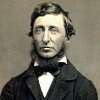“ The man who goes to his work every morning at a certain hour is actuated fundamentally by the same impulse, namely the need to secure a living, but in his case the impulse does not operate directly and at the moment when it is felt ”
Bertrand Russell, The Conquest of Happiness (1930). copy citation
| Author | Bertrand Russell |
|---|---|
| Source | The Conquest of Happiness |
| Topic | work impulse |
| Date | 1930 |
| Language | English |
| Reference | |
| Note | |
| Weblink | http://russell-j.com/beginner/COH-TEXT.HTM |
Context
“Loss of zest in civilised society is very largely due to the restrictions upon liberty which are essential to our way of life. The savage hunts when he is hungry, and in so doing is obeying a direct impulse. The man who goes to his work every morning at a certain hour is actuated fundamentally by the same impulse, namely the need to secure a living, but in his case the impulse does not operate directly and at the moment when it is felt: it operates indirectly through abstractions, beliefs and volitions. At the moment when the man starts off to his work he is not feeling hungry, since he has just had his breakfast. He merely knows that hunger will recur, and that going to his work is a means of satisfying future hunger.”
source


